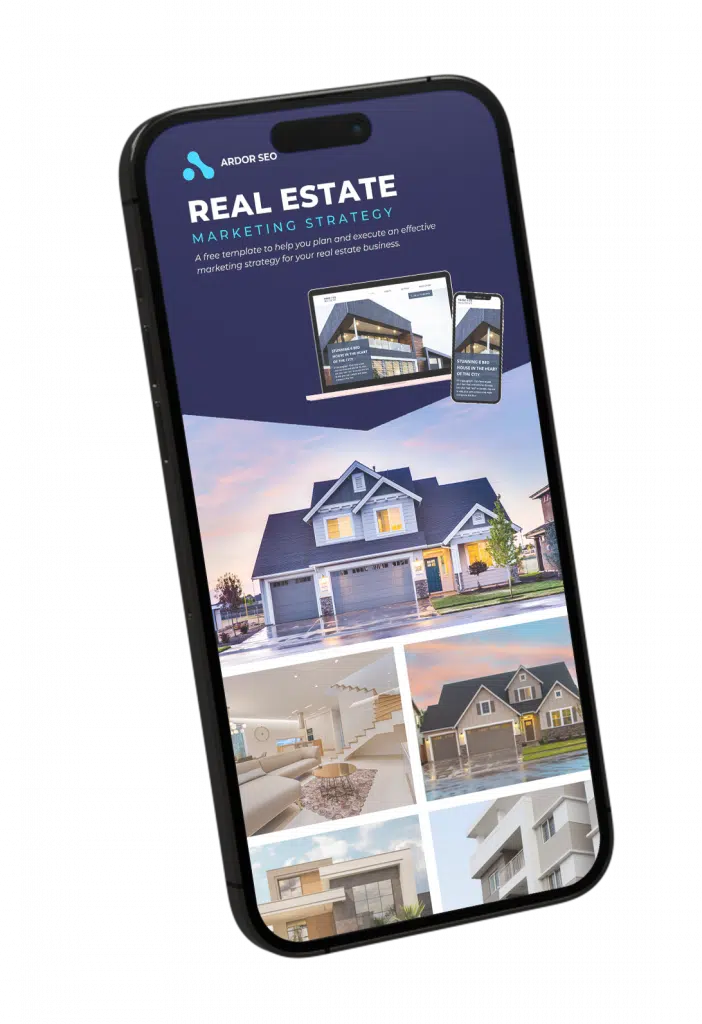
It's hard to encounter a sector that hasn't been affected by blockchain technology. Blockchain development has recently swept through the real estate industry, and its adoption is rising.
Blockchain technology in real estate offers numerous advantages to agents and companies. Notable mentions include facilitating safe and secure property transactions, automating property management activities, and making intelligent decisions.
Due to its ability to revamp the residential and commercial real estate market, the blockchain is gradually cementing its spot in the entire industry.
This detailed guide examines the blockchain and real estate fusion and how your business can leverage blockchain technology in the saturated real estate market.
Let's dive in!
How Does the Blockchain Work?
Before we get a hold of the blockchain real estate transaction process, it's essential to understand how the "blockchain" works in real time.
Most people think the blockchain is a database. However, this isn’t entirely true. While data inserted in databases are easily compromised, variations embedded in the blockchain are unchangeable due to its multiple encryptions.
But how does the blockchain do this? Let’s briefly get some perspective.
A blockchain collates and groups information in "blocks." Every block has a unique data limit. When one is filled, it automatically chains itself to a previously loaded block. This action, occurring repeatedly, creates multiple blockchains featuring data.
The chains formed around these blocks make featured information impenetrable and indestructible. Afterward, data is transferred to numerous computer systems, forming a ledger in the process. These ledgers can be reviewed by anyone.
Note that fungible and non-fungible tokens appear on the blockchain. Just think of the blockchain platform as one that hosts digital transactional data and spreads them across specific computer networks.
Blockchain and Real Estate: A Trip Down Memory Lane
Since the early 1900s, real estate agents have been intermediaries between property buyers and sellers. An agent in the transaction process fostered trust between both parties. As industry experts, these agents understood the caveats surrounding selling and buying real estate. To date, realtors remain at the bulk of real estate transactions.
Nonetheless, the tide is gradually shifting with blockchain technology utilized in the real estate industry. In 2009, several individuals using the name — Satoshi Nakamoto — created the first-ever Bitcoin format.
Nine years later (2018), South Burlington, Vermont, recorded the first blockchain real estate transaction on Ethereum. This event earned the city the "global blockchain leader" tagline.
This transaction was an essential part of Propy's pilot program. Based in San Francisco, Propy is one of the earliest real estate trading platforms that allowed people to conduct realty transactions on a global scale.
The startup's blockchain technology records all transactional procedures, from initial interest and contract signings to title searches and transfers.
How Blockchain Technology Will Transform the Real Estate Industry
Although blockchain technology is still growing, its possibilities are vast. Real estate companies like Propy and Redfin are revamping the realty terrain by facilitating digitized global real estate transactions.
These platforms make real estate deals cost-effective and less time-consuming by removing extras like insurance, audits, and a long trail of paperwork.
That said, here are some intuitive ways blockchain technology will enhance the real estate vertical:
1. Transaction Security and Total Control
Regular realty transactions are slow, and you'll need multiple resources to process these deals. However, blockchain technology simplifies and streamlines the entire process, from uncovering a property to eliminating fraudulent scenarios impacting the transaction's success.
Using the blockchain, real estate companies and investment firms can determine the legitimacy of mortgage applications. With blockchain tech featuring an indestructible digital ledger, these entities can track an individual's history to ensure their application is void of irregularities, reducing, if not eliminating, possible uncertainties between parties.

2. Real Estate Smart Contracts
Blockchain in real estate will spearhead the adoption of smart contracts. A blockchain-based smart contract spells agreement terms between buyers and sellers. Unlike paper contracts, caveats embedded in a smart agreement appear as code and are transmitted across a decentralized blockchain system.
Transactions executed with smart contracts are automated. By keying into a real estate deal hosting this agreement format, you won't need to endure endless meetings with lawyers, bankers, and brokers. Due to blockchain real estate encryptions, buyers and investors can rest assured knowing T&Cs accompanying smart contracts are unchangeable once drafted.
3. Property Management Automation
Blockchain in real estate will eliminate the use of paperwork in facilitating real estate deals between multiple parties. This technology also removes the hassle of utilizing software programs to streamline specific procedures.
Blockchain technology provides a one-size-fits-all solution. A decentralized software based on blockchain-themed smart contracts makes project management and property development processes efficient.
4. Accessible Real Estate Investing
From time immemorial, real estate investing has been a stressful and draining process. To invest in real estate assets like single and multi-family homes, engaging multiple parties are critical. Additionally, the financial commitments to kick-start some of these investments are high.
With blockchain tech in the mix, multiple investors can purchase tokens and co-own a real estate asset. This activity, referred to as property tokenization, grants you fractional ownership of a specific property.
Tokenization also liquidates realty investments, allowing investors to buy or share property stakes without difficulties. The "hassle-free" nature of this process makes blockchain real estate investments appealing to potential investors and homebuyers.
5. Secondary Market Opportunities
Real estate tokenization grants numerous opportunities to enter the secondary market. This venture is achievable by digitally recreating assets, reducing transaction costs, and ensuring worldwide accessibility.
Since blockchain technology permits real estate asset liquidation, seamlessly buying and selling digital assets on the secondary market is 100% possible.
6. Accurate Data Tracking and Analysis
As we've established, blockchain real estate uses distributed ledger technology. Thus, information concerning a blockchain property or contract is readily accessible to real estate companies and investors. This blockchain add-on breeds fairness during the transaction process.
Combining blockchain's ledger technology and big data paves the way for tracking realty deals across multiple jurisdictions. With big data's inclusion, real estate professionals can implement informed decisions that'll yield positive outcomes.
7. Automated Deals
Current blockchain applications provide autonomous escrow. This technology eliminates the need to hire real estate agencies proficient in deal facilitation. Thus, those utilizing the blockchain for realty deals will avoid the exorbitant fees charged by most escrow services.
8. Urban Planning
In most US states, property development is conducted without considering valuable insight from the community. Thus, residents feel left out as their planning ideas never see the light.
Nonetheless, blockchain-themed planning platforms integrate token-based promotions, educational resources, and a chat system that ensures feedback between significant stakeholders.
These top-tier add-ons will improve community participation and integrate communal values into property development projects, strengthening public confidence and the developer's capabilities to create sustainable success.

How Real Estate Players Can Benefit From Blockchain Technology
We've just outlined how blockchain tech can enhance the real estate industry. Now, it's time to delve into how specific real estate player categories can benefit from its revolutionary add-ons.
Blockchain in real estate will prove advantageous to:
Property Owners and Investors
Since the blockchain integrates rock-solid encryption to prevent hacks, prospective property owners and investors are guaranteed peace of mind when purchasing real estate structures. When funding a transaction, they're certain that the landholding's price and add-ons are legitimate.
Also, real estate tokenization aids liquidation, making realty investing seamless for intending investors and homeowners. That way, sellers won't wait long for buyers who can outrightly purchase the structure to garner positive returns.
Residents and Tenants
From getting in sync with a property's offerings via virtual tours and signing smart contracts to making rent payments, the entire leasing process is smooth sailing from start to finish. Besides the blockchain safeguarding these processes, featured parties can conduct background checks to ascertain identities, as personal information is deemed unchangeable.
The blockchain also allows people to negotiate real estate deals while on the move. For instance, you could rent out a home in California and negotiate the transaction in Brazil without experiencing hitches. With blockchain and real estate working together, geographical limitations don't exist.
Property Managers
Property management involves more than just painting a structure's lobby and repairing the faulty sink in a tenant's apartment. With traditional methods in play, property management usually leaves a trail of paperwork (i.e., maintenance requests and contracts) in its wake.
Fortunately, using decentralized software based on blockchain tech creates detailed and error-free smart contracts. This system gives managers vital data about lease values, property and tenant overview, payment structure, and active agreements.
Property Developers
Numerous individuals invest in development projects. However, the developer must raise funds to aid project commencement and fulfillment.
Although fractional ownership isn't a new real estate concept, blockchain technology makes it easier for developers to solicit monetary contributions from potential investors within and outside their network without vetting their distinct profiles.
The blockchain stores crucial information like building plans, manuals, and other materials accessible 24/7 by all stakeholders. This feature aids quicker transactions, allowing developers to realize the projects' goals without nagging issues diverting their attention.

Blockchain and Real Estate: Major Challenges to Note
Blockchain in real estate commenced a few years ago. Therefore, it's no surprise that specific challenges exist. The issues affecting the blockchain and real estate market's seamless fusion are mostly legal and technical.
Most blockchain real estate projects can only proceed as planned once the technology is adequately studied and tested. Also, blockchain problems exist as the technology requires more individuals proficient in creating solutions.
Trust is also another challenge faced by blockchain in the real estate industry. Although specific applications conduct contactless transactions, they're trusted by few consumers due to a lack of licenses and certifications.
Albeit visible in the real estate vertical, complete blockchain adoption is 15 to 20 years away. As people begin to understand how it simplifies the otherwise complex real estate process, a revolution that'll prove advantageous to major players will occur.
If you can create a business reliant on blockchain soon, you'll be able to disrupt the real estate market alongside other sectors without facing stiff competition for years!
Frequently Asked Questions
What Are the Most Notable Advantages of Blockchain in the Real Estate Sector?
Real estate and blockchain tech combine to expedite the following:
- Property management automation
- Shared or fractional ownership
- Smart contracts
- Seamless data tracking and analysis
- Cost reduction
- Tokenization in real estate
Can the Blockchain Prevent Subleasing?
One of property managers' most daunting tasks is uncovering tenants breaching the structure's T&Cs by illegally subletting their apartments or units to others.
Since there's no decentralized property listing service, tenants can discreetly sublet their units. However, with blockchain-based listing alternatives, tenants who post subleasing ads can be tracked.
Once they publish their "sublease intent," the system automatically flags it, sending an immediate prompt to the property manager.
Is It Advisable to Accept Rent Via the Blockchain?
Although cryptocurrencies like Bitcoin and Litecoin aren't go-to payment alternatives in the real estate vertical, some entities use the blockchain to create rent records.
Making rental payments with cash or cheques still reigns supreme in this market, even with the rise of eWallets and other virtual transaction alternatives.
However, things are changing. For example, some condominiums accept Bitcoin and Ethereum tokens as rent.
While we're getting to the stage where all tenants will make crypto-based payments, platforms like ManageGo are revolutionizing the industry by converting crypto rent money to actual USD via Coinbase.
Parting Shot
The blockchain is capable of revamping the entire real estate industry. The disruptive technology will undoubtedly impact the roles executed by players within this sector.
Although full-blown adoption hasn't occurred, blockchain tech wields numerous advantages.
First, it diminishes the need for third-party intermediaries like lawyers and agents. With smart contracts, automating the entire real estate process, from listings to payments and document exchanges, is possible. Thus, investors and home buyers can conclude realty transactions faster and save money.
With blockchain leading proceedings in the real estate sector, investment barriers are non-existent, allowing individuals from all walks of life to key into landholdings without boring a hole in their finances.
Blockchain tech is the future. For your real estate business to become a reputable name when this innovation takes off, engage the professional services of Ardor SEO.
Employing tested and proven real estate SEO techniques, we'll take your business from obscurity to being a predictable, cash-generating machine in no time! Contact our SEO experts to get your firm in front of prospective customers.

